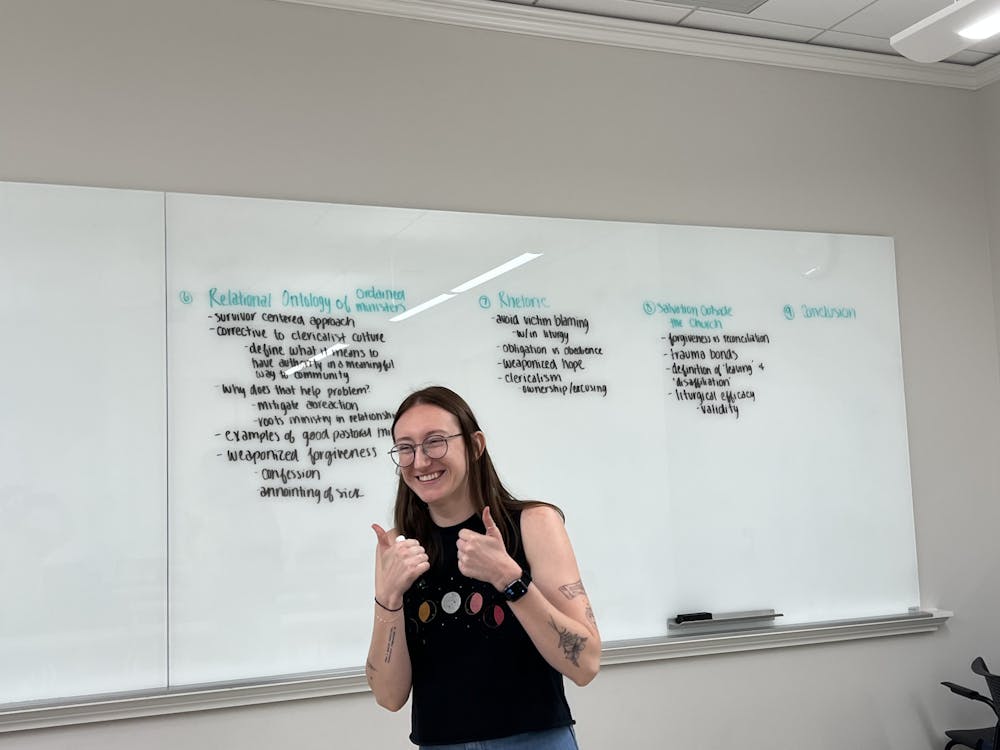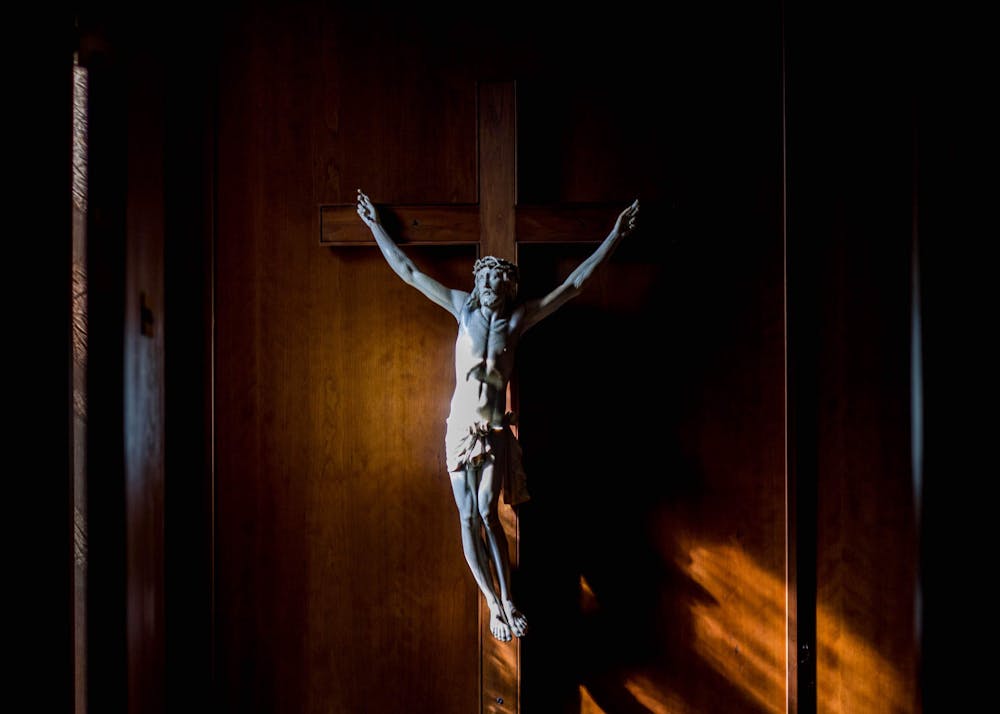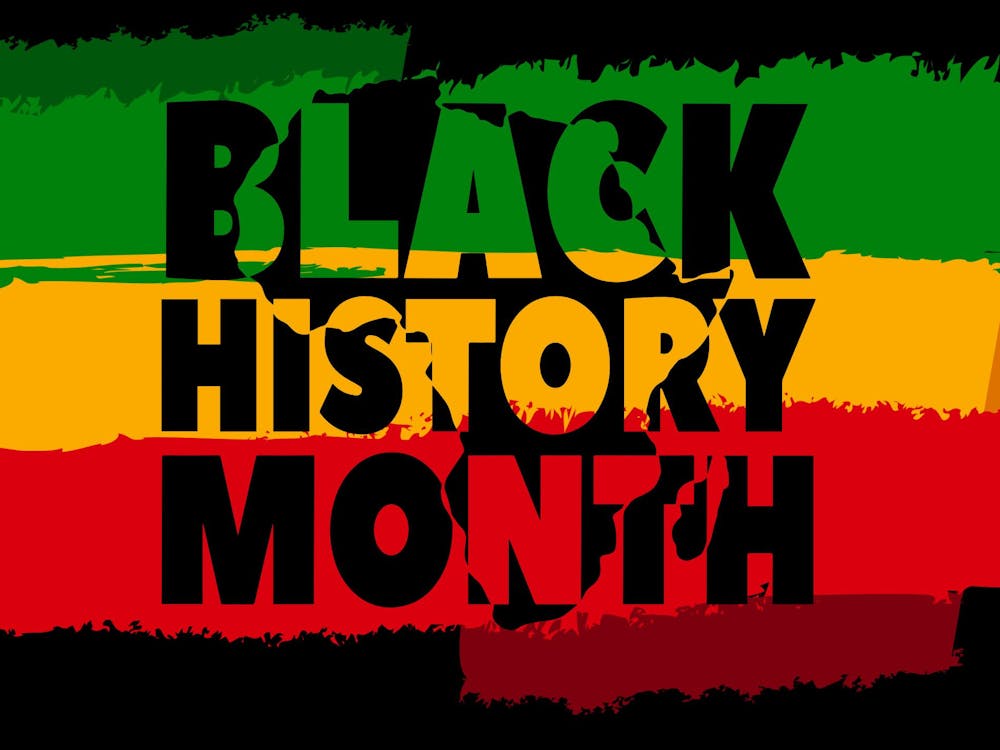In summer 2021, theology and religious studies professor David Turnbloom, along with then UP students Megan Breen, Noah Lamberger and Kate Tyschper, formed a small research group on campus called the CHIRP Lab: Collaborative Humanities Investigating Religion and Power.
What began as a modest academic initiative has since evolved into something far beyond what they first imagined.
Four years later, the cohort is celebrating the upcoming publication of their co-authored book, “Liturgy in the Shadows of Trauma: Reckoning with the Roman Catholic Sex Abuse Crisis.” It is set to be released early this winter, but the exact date is still undecided.
The book continues their original research from the CHIRP Lab, which resulted in two published research articles, “Liturgy in the Shadow of Trauma” and “Confronting Rhetorical Violence in Response to the Catholic Sex Abuse Crisis.”
As the article titles suggest, the book is about the ways trauma, especially from the Catholic sex abuse crisis, influence how people experience Catholic worship. It also explores how that trauma can interfere with what the liturgy is meant to achieve, according to Turnbloom.
“The liturgy is supposed to help people become more like Christ, be connected as a community more, and when trauma, like from the sex abuse crisis, occurs, it fundamentally changes how people experience that,” Turnbloom said. “And so it takes on a different meaning for people.”
Fr. Peter Walsh, CSC, and co-director of the Garaventa Center for Catholic Intellectual Life and American Culture, says that since UP’s values are rooted in the Holy Cross tradition, the university carries a responsibility to remain true to them. Part of that commitment, he says, involves confronting the inconsistency between the Church’s teachings and the reality of the sex abuse crisis. This inconsistency is one the book seeks to address.
“For a lot of people, it's an uncomfortable topic because it calls into question their faith, their beliefs, their faith tradition, our faith tradition,” Walsh said. “And just because it's controversial doesn't mean that we shouldn't analyze it. We need to.”
The co-authors accomplished this feat by deploying an interdisciplinary approach in the book. They pulled from each of their individual degrees in history, social work, philosophy and theology, as well as their lived experiences, to discuss the sensitive consequences of the Catholic sex abuse crisis and potential paths forward.
To publish their research, collaboration was the heart of their work. In August 2023, Breen, Lamberger, Tyschper and Turnbloom huddled in a Dundon-Berchtold Hall classroom, and they scribbled on whiteboards to map out the logistics of writing a book together, especially after Breen and Lamberger had graduated.

Kate Tyschper during the group's planning of the book. Photo courtesy of David Turnbloom.
“Taking on a book felt like a whole different animal and more complicated because not all of us were in school anymore,” Tyschper said. “We had full time jobs. We had things, partners, relationships, moving across the country, stuff like that that were gonna play into how we did research, what amount of energy and attention we were able to put into this.”
While the group navigated their new research style without weekly, in-person meetings, they also considered changing their original, collaborative writing process. Breen recalls questioning whether co-authoring across all chapters was feasible for the book, or if they should instead shift to writing their own chapters.
Ultimately, they felt the co-authoring approach was worth the effort. Having their name on the cover and knowing that each person contributed to the entire manuscript, rather than working in silos, gave them a sense of true ownership that’s rare in academic publishing, according to Tyschper.
“It really isn't just any one person's book,” Lamberger said. “So it feels very special that this is something that we got to work on together and create.”
Each co-author brought a unique academic and personal background to the conversation. The group also collaborated on how to effectively get their point across by embracing their interdisciplinary perspectives, even down to the most intentional word choices.
“I learned a lot about compromise, because when you're talking about a subject as difficult as this, the perspective that you have to understand [comes] from everyone's shoes,” Breen said.
The group now closes this chapter of research and writing with their readiness for the book’s publication. However the final product is not the goal, according to Turnbloom, but rather how the research process changes who they are as individuals and as a community.
“I think that's a really important part that makes our work more meaningful, and certainly has made it so much more rewarding than any other work I've ever done as a professor, is when I learned to go, ‘Oh, stop worrying about the thing you produce and start worrying about the people you're working with,’” Turnbloom said.
As the alumni co-authors reflect on their time spent working on this book, they are all grateful for the skills they’ve learned from this experience.
“I don’t have a PhD, I don't have a master's degree, but my lived experience and my educational experience meant something,” Tyschper said. “And that was the most fulfilling part of this whole entire process.”
Kaylee Monahan is the Copy and Opinions Editor at The Beacon. She can be reached at monahan26@up.edu.








